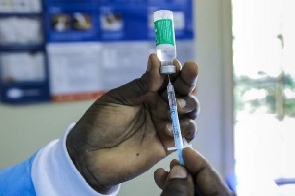Rheumatic heart disease (RHD) is significantly under-treated in Africa and India according to the preliminary findings of a new global study presented on Saturday at the World Congress of Cardiology, made available to the GNA.
Across the African and Indian regions included in the study, it was revealed that patients are not receiving the surgery they need.
Secondary prevention with penicillin to prevent further attacks of rheumatic fever is being under-utilized and many patients are unaware of their target anti-coagulation levels.
The study said only 41% of patients enrolled in the study had received surgery.
As the pilot results included a large tertiary academic centre, this does not reflect the dire lack of surgery available at the majority of enrolling centers.
In fact, more than 85% of the enrolling centres do not have surgery available on a regular basis for RHD patients.
Nearly one-quarter of all patients (22%) were in aerial fibrillation, and of these patients only 65% were receiving necessary anti-coagulant therapy.
Moreover, 71% of these patients did not know their target international normalized ratio (INR) - an indicator of blood clotting time – 14% had no INR reading in the six months prior to enrolling in the study, and 78% were not at their INR target.
The study showed that, only 36% of patients with moderate or severe disease and only 20% of those that have undergone valve replacement surgery are receiving secondary prophylaxis with penicillin.
“Across Africa and India it is widely known by cardiologists that many patients with RHD do not have access to the healthcare treatment they need. These results unfortunately show that, even those that are being treated are not receiving the care they need for a variety of reasons,” said Dr. Liesl Züklhe, Paediatric Cardiologist, Red Cross Children’s Hospital, University of Cape Town, South Africa.
These data represent the first findings from the RHD global registry (REMEDY), which is currently ongoing in almost 30 centres in Africa, Middle East and India. Some 579 patients from 10 sites in Africa and India were enrolled in the REMEDY study during the first 10-month pilot period as part of a global effort to better understand the situation today.
RHD is a chronic heart condition caused by rheumatic fever that can be prevented and controlled. Rheumatic fever is caused by a preceding group A streptococcal (strep) throat infection. Treating strep throat with antibiotics can prevent rheumatic fever.
Moreover, regular antibiotics (usually by injections every three to four weeks) can prevent patients with rheumatic fever from contracting further strep infections and causing progression of valve damage.
RHD is a substantial global health problem that can result in irreversible heart damage and death. It occurs predominately in developing countries and is also common in poorer populations in middle-income countries (e.g. Brazil, India) and some indigenous populations in wealthy countries (Australia, New Zealand). **
Health News of Monday, 23 April 2012
Source: GNA
Rheumatic heart disease is significantly under-treated in Africa and India
Entertainment











